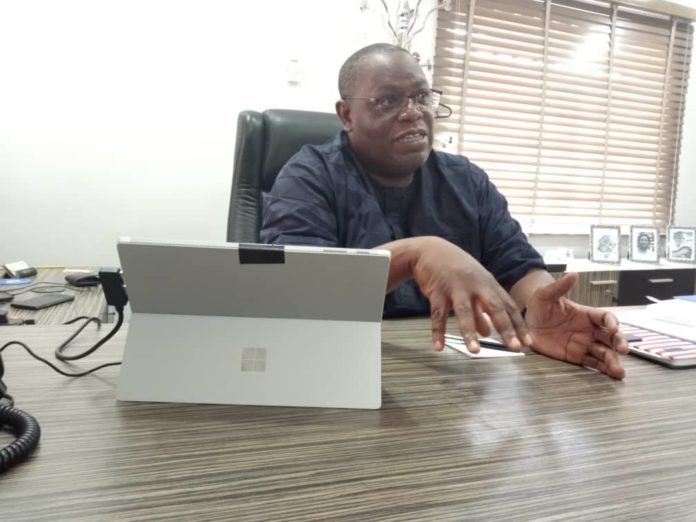Engr. Emmanuel Katepa is the Managing Director, CEC Africa Investments Limited (CECA), and a Core Investor at Abuja Electricity Distribution Company (AEDC). In this Interview with TheFact Nigeria, he shares his thoughts on the company’s operations during the lockdown especially in the area of revenue collections. Excerpts:
Sir, please can you give us an update on the company’s operations during the lockdown?
Despite the lockdown, we have maintained a full service to our customers and paradoxically, many of our residential customers have seen an increase in supply hours during this period. This has been because despite the continued capacity constraints nationally, there has been less consumption from commercial and industrial customers who have had to also slow down their operations due to COVID 19 precautions. It has been a challenging time, as you well may appreciate, having to continue serving our valued customers whilst also ensuring that our employees are not exposed to any undue risk. Our Health and Safety team procured all the personal protective equipment that were recommended by national and international health authorities and were vigilant in carrying out on the spot inspections to ensure that all those workers that were designated essential to maintain uninterrupted service were adhering to the recommendations. At the offices, we ensure that all staff that could work remotely were encouraged to do so. Our investment in ICT equipment over the past 7 years really paid off as we have found that we were able to continue working through remote working channels even with most of the team keep working from their homes.
How was the revenue collections during the lockdown?
The lockdown has seen a sharp decline in collections. In March, we saw a moderate increase in collections, which we attribute mostly to customers who were buying units in anticipation of the impending lockdown. This however reversed sharply in April, where we saw a drop of more than 30% in collections. We believe this was a result of a combination of reduced ability to pay on the part of many of our customers who were unable to work, and commercial and industrial customers who shut down or greatly reduced their operations. There was a further impact from the reduced ability of our customer facing staff to interact with our customers as regularly as they otherwise would. We noted somewhat of a recovery in the month of May, but we expect that it will be a slow road back to our pre-lockdown performance. We have continued to prioritise our market obligations, to ensure that other links in the value chain also get a share of the admittedly reduced cash flow coming into the sector.
Has the change of leadership in TCN affected AEDC in anyway?
AEDC continues to enjoy cordial relations with all stakeholders and this is so for TCN as well. We support the government in their appointment of experts that add value to the sector and we stand ready to work with the new leadership team at TCN in furtherance of our mutually held objective of developing the Nigerian Electricity Supply Industry to the benefit of our customers.
Electricity Supply by AEDC last month was erratic, what could be the reason for that?
You may have been aware that there were some gas supply challenges which throttled capacity on the national grid. Such a situation puts AEDC in the unenviable position of having to decide how to distribute the little power that is available. Due to our obligations to other stakeholders in the upstream value chain, this inevitably means that we prioritise those areas that are more commercially viable to ensure that we collect sufficient revenues to meet our minimum remittance obligations and this will lead to extended outage hours for some marginal areas. In addition to this, we are just entering the peak of the rain season and with vulnerable protection systems in some areas, qlightening strikes and cable faults also contribute to an increase in localised outages at this time of the year.





































